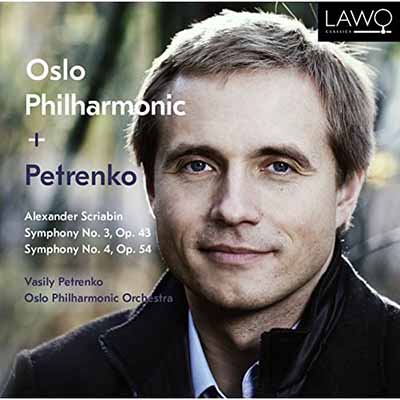Alexander Scriabin: Symphony No. 3, Op. 43, Symphony No. 4, Op. 54
LAWQ / 2015
Alexander Scriabin: Symphony No. 3, Op. 43, Symphony No. 4, Op. 54
Scriabin’s deep immersion in esoteric philosophy and related spiritual awakening became integral to his art. The Russian composer’s initial conservative musical language evolved in the early 1900s and opened up to daring harmonic territories.
Petrenko notes “At first the orchestra was a little unsure about his [Scriabin] music, but they worked very hard on the Symphony No.3 and the ‘Poem of Ecstasy’ and are now big enthusiasts for Scriabin.”
Ingrid Røynesdal, the Oslo Philharmonic’s Chief Executive Officer said of the recording: “Vasily Petrenko is passionate about Scriabin. His music especially suits the Oslo Philharmonic, with its rich string sound, fantastic woodwind soloists and uniquely strong brass section.”
Tracklisting
I. Luttes (Struggles)
II. Voluptés (Delights)
III. Jeu divin (Divine Play)
Alexander Scriabin: Symphony No. 4, Op. 54 ‘Le Poème de l’extase’
Symphony No. 4, Op. 54 Le Poème de l’extase’
Reviews
“The performances, although recorded in a rather muddy acoustic, have the lean vigour we’ve come to expect of Petrenko from his work with the Russian repertoire at the Royal Liverpool Philharmonic. Not all of the The Divine Poem is divine — scored for enormous forces, it’s prone to flabby repetition — but Petrenko and his Norwegian orchestra don’t make the mistake of driving it too hard.” – The Times
“It’s the first recording in the Oslo Philharmonic’s ongoing survey of Scriabin’s symphonies under the fiery baton of Vasily Petrenko, and together they give a gloriously opulent and fervent account [of No. 3]. There’s more mystery and wonderment in the accompanying Symphony No 4 Le Poème de l’extase. If ever a set of performances caught the weird, psychedelic world of Scriabin, it’s this one.” – The Scotsman
“alertness and close attention to detail that’s evident in every bar” – The Guardian
“[Petrenko] shows an excellent grasp of each symphony’s dramatic trajectory, and a broader than usual awareness of the creative legacy within which Scriabin worked” – BBC Music Magazine

